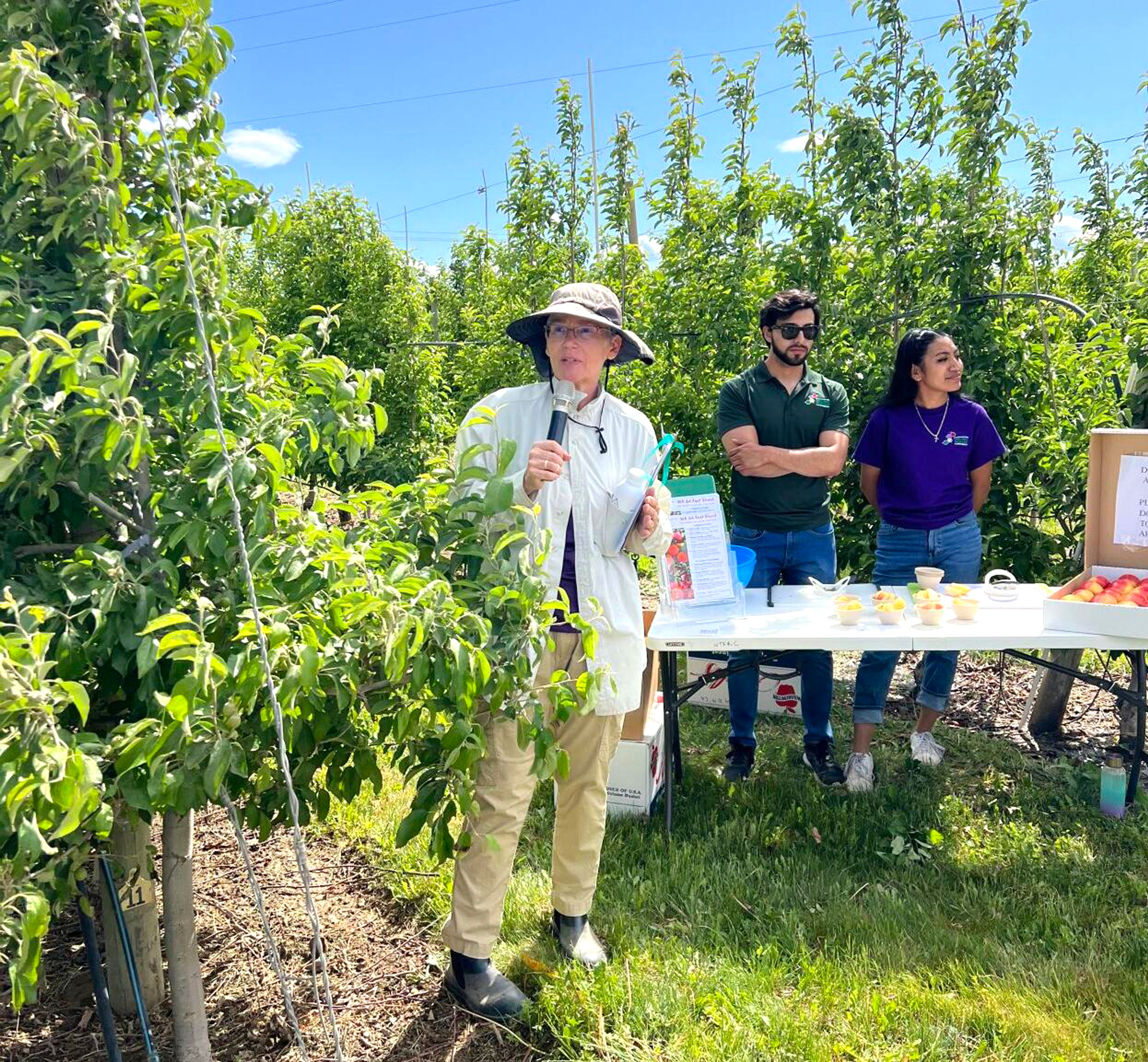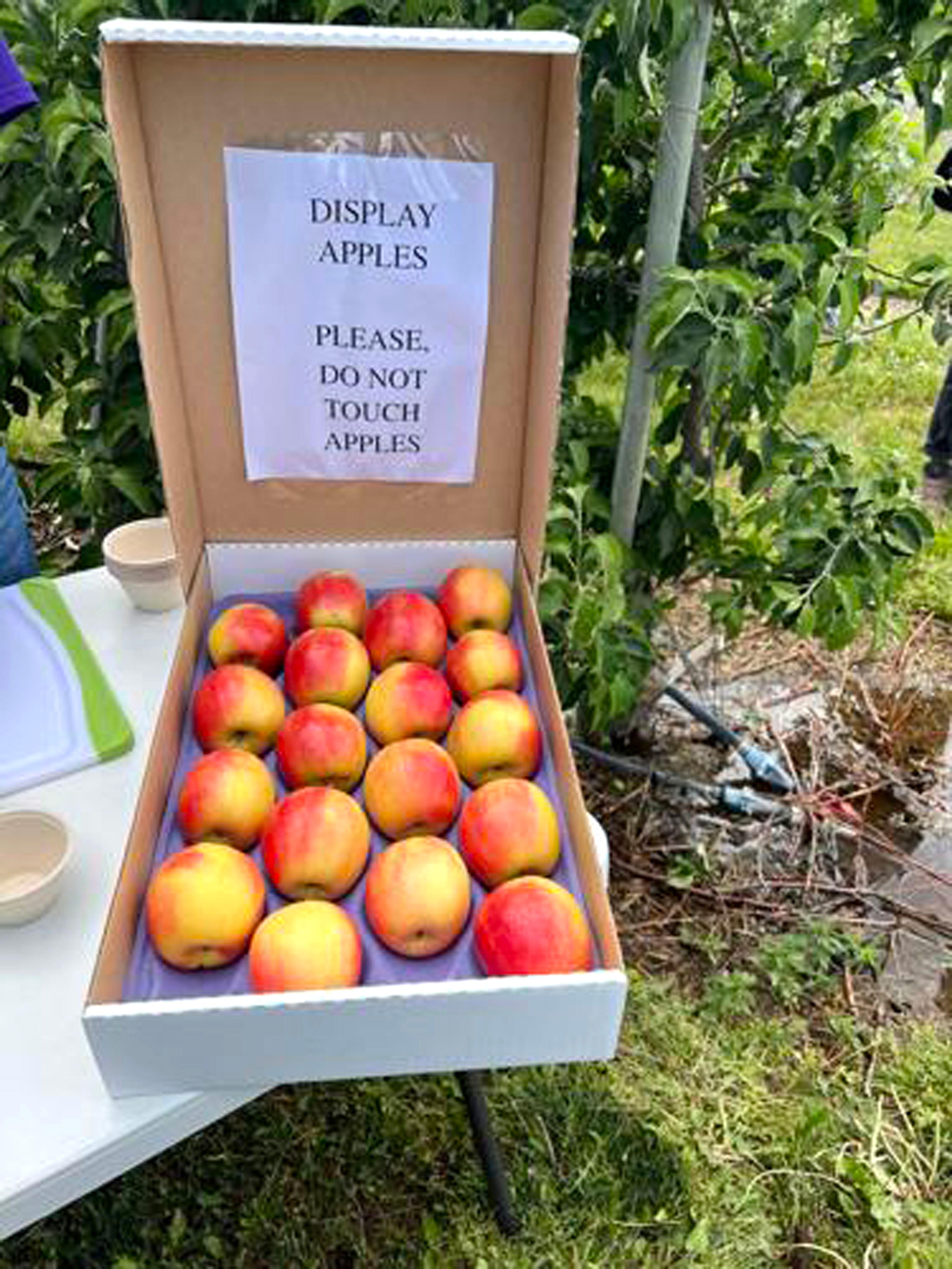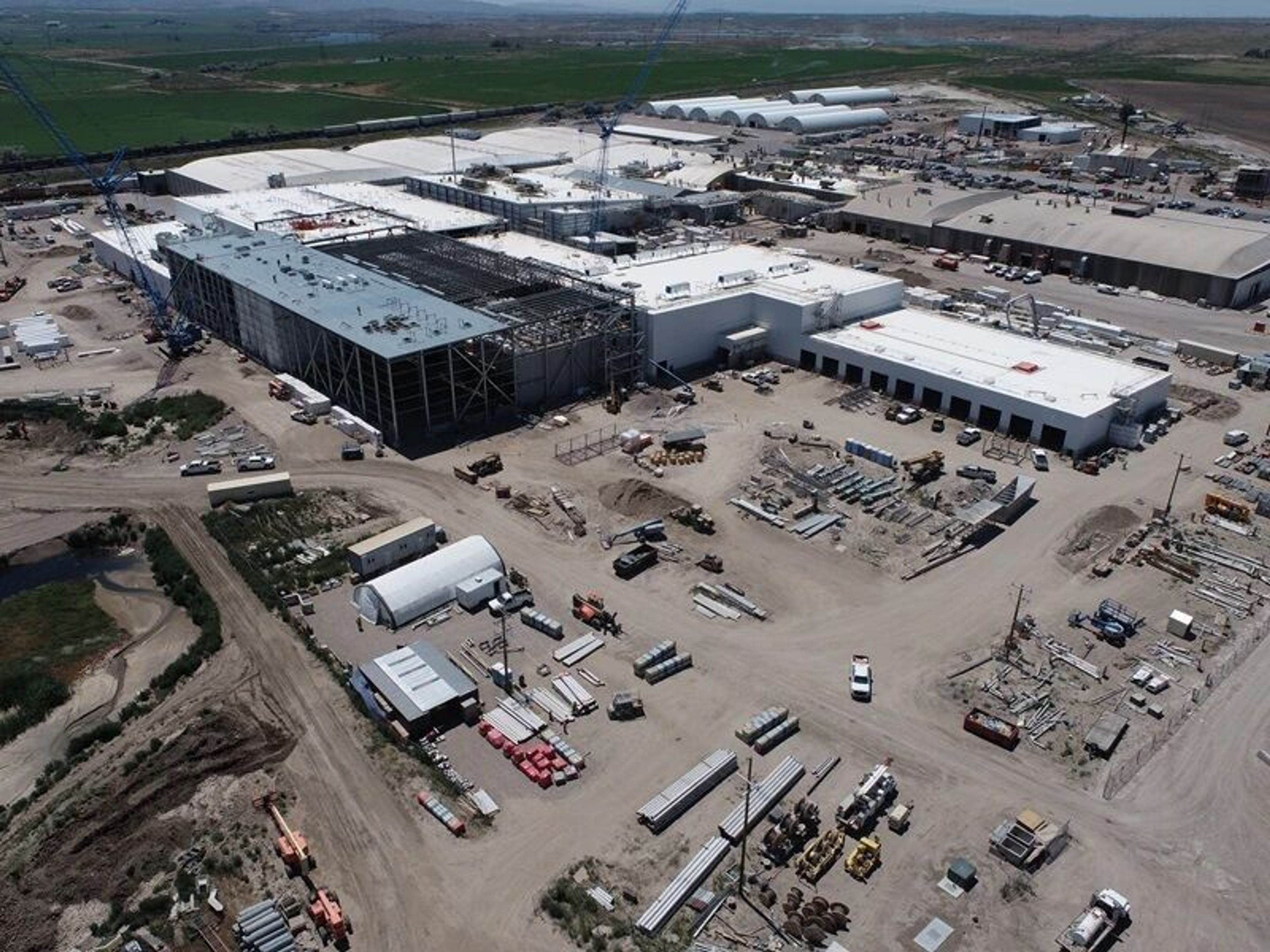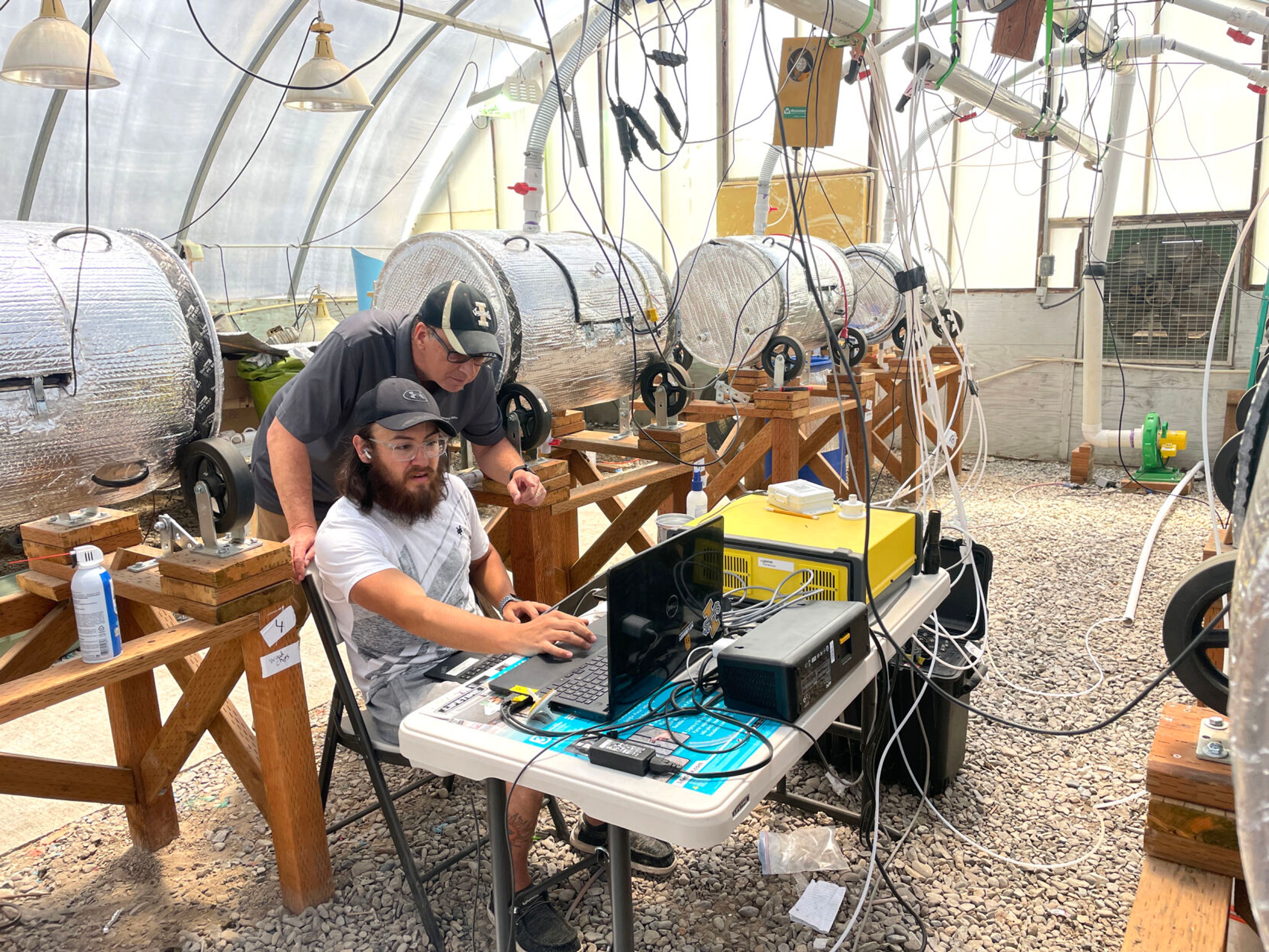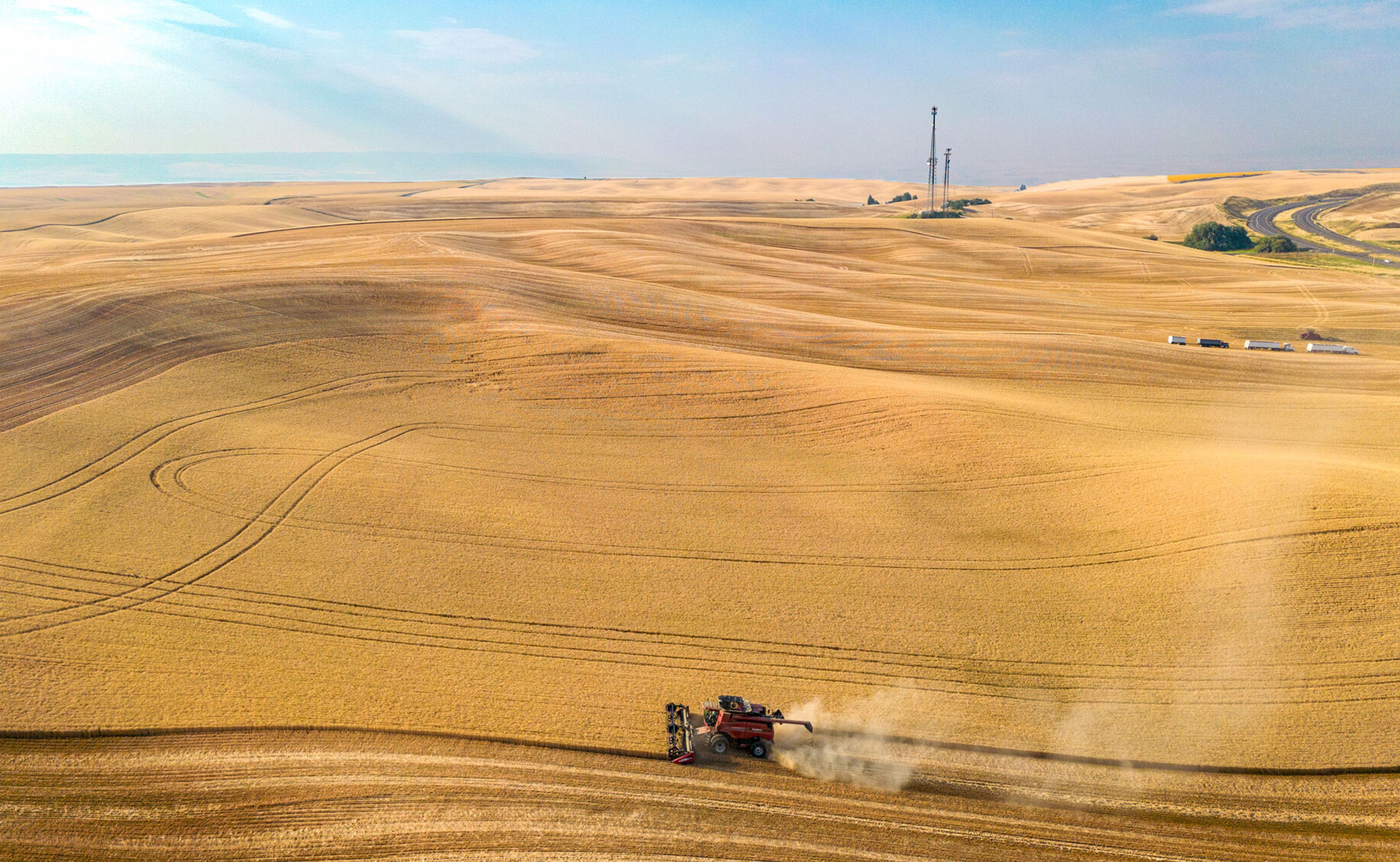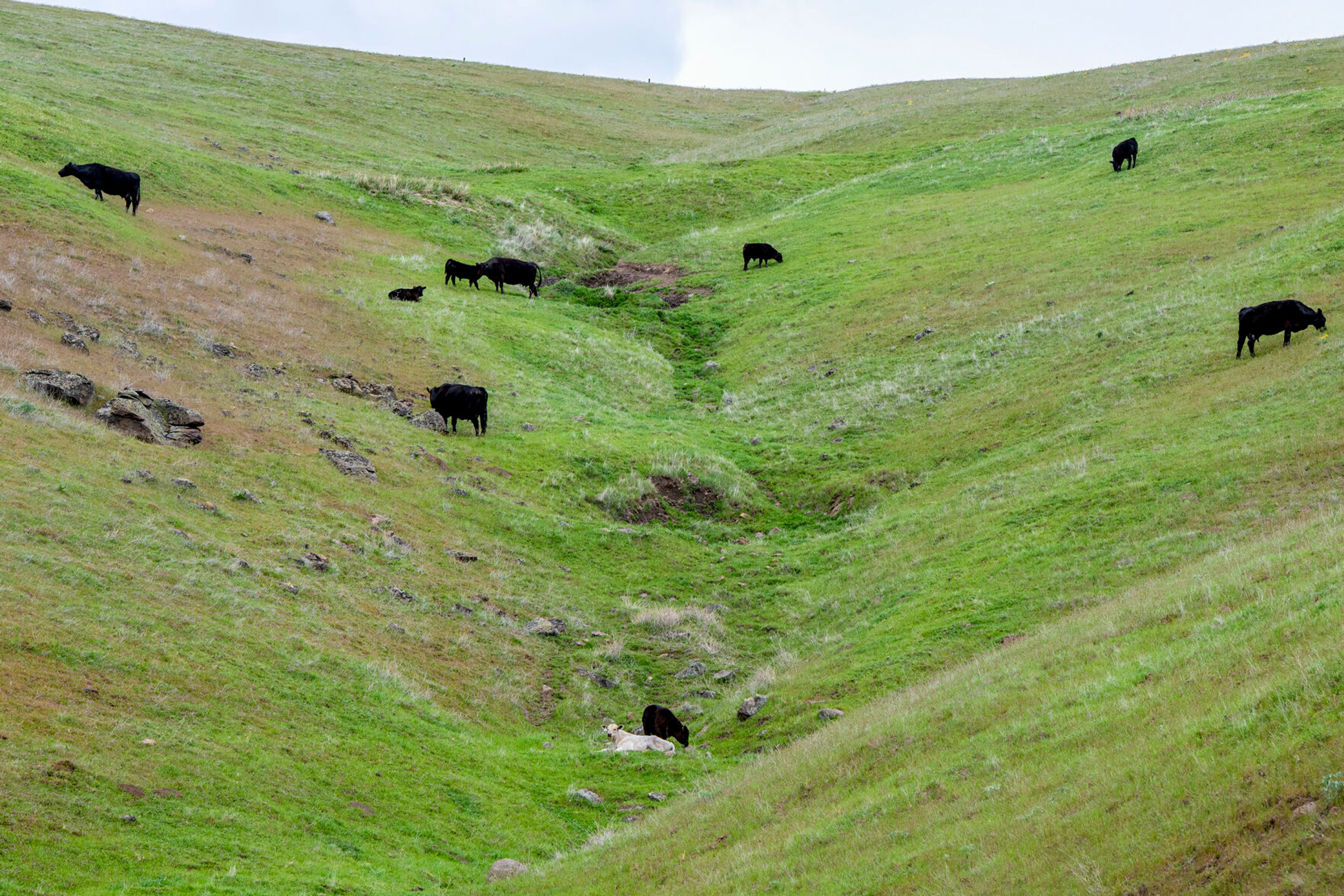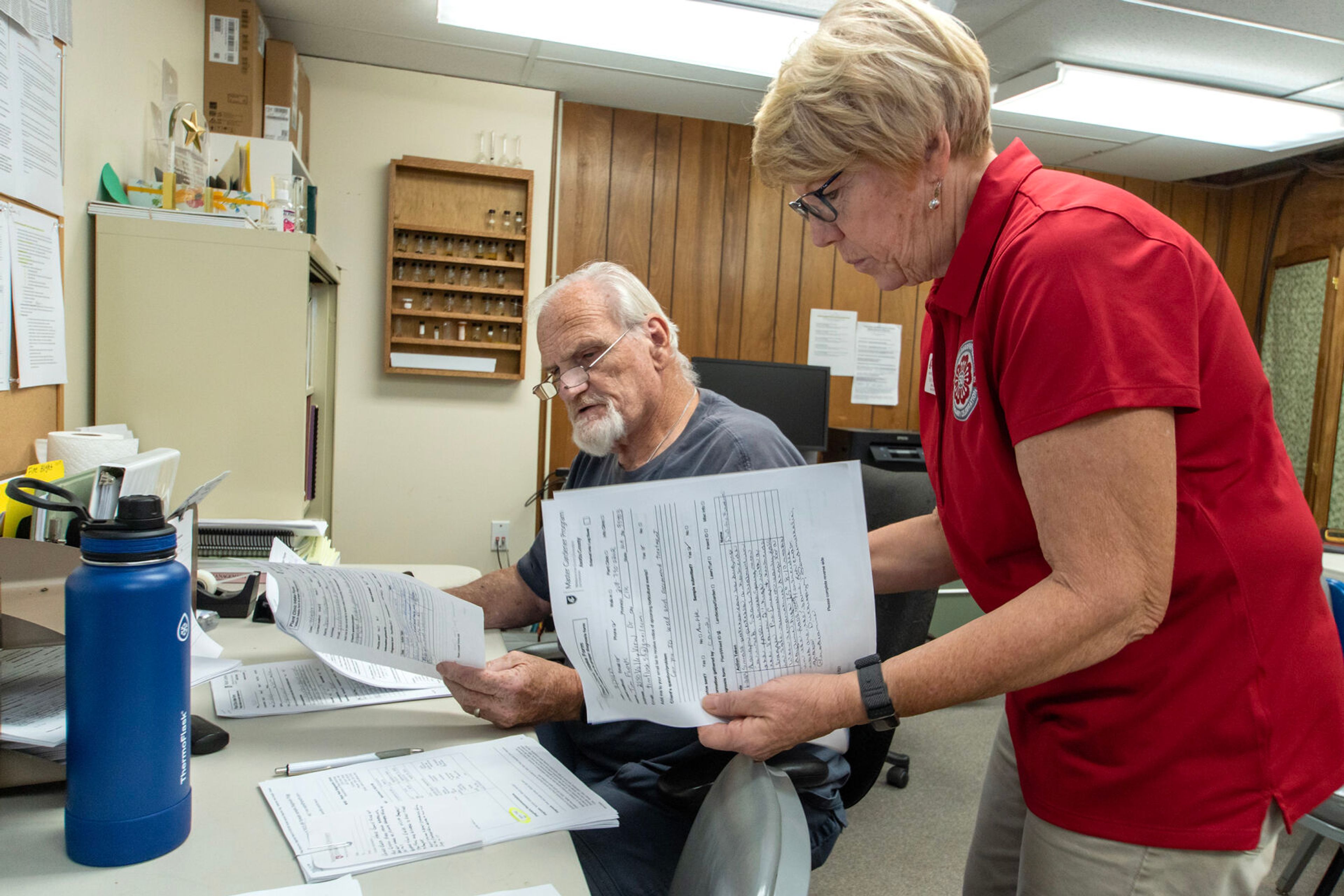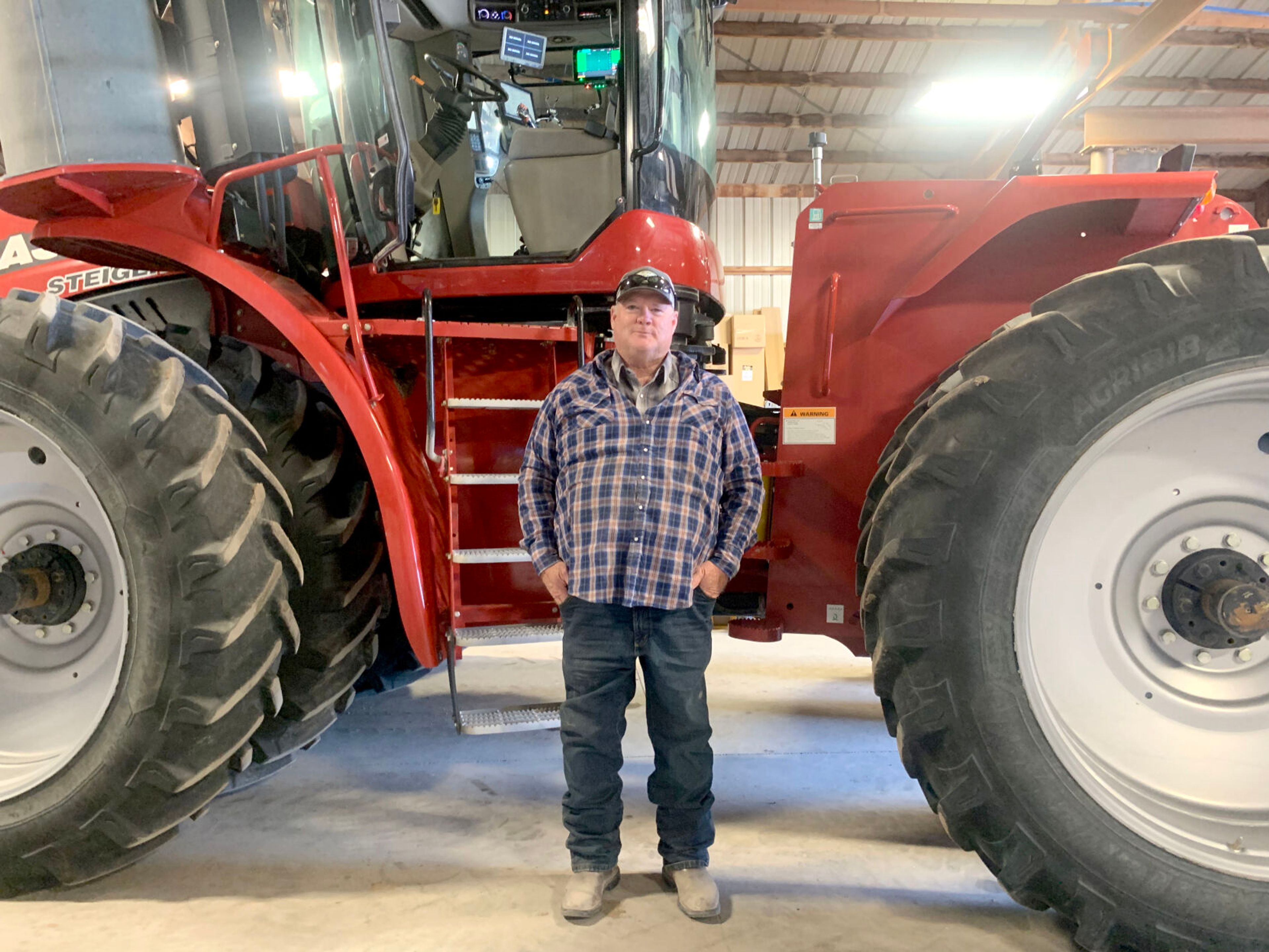WSU’s newest apple coming to your supermarket ... in six years
Methodical task of creating a new apple variety has resulted in hybrid between Honeycrisp and Pink Lady
Washington State University’s newest apple, WA 64, is 25 years in the making.
Though apple growers would like to see it on the market sooner, Kate Evans, WSU professor and apple breeder, said it usually doesn’t work that way. She added a couple decades may seem like a long time, but it’s typical when creating a new breed of apple.
WA 64 is a sweet, tart and crisp hybrid between the Honeycrisp and Cripps Pink, better known as the Pink Lady. Its appearance stands out from other WSU-bred apples, with a pink blush over a yellow background.
Evans said compared to the Cosmic Crisp, WA 64 has a denser flavor and texture than its predecessor.
The apple is anticipated to reach stores by 2029, Evans said. WSU’s breeding program released the apple for commercial licensing this summer, and will select a partner in the coming weeks to make trees available to Washington growers. After that, WSU expects to choose a brand name for the apple by 2024.
WA 64 was first crossed in 1998, and got its name for simply being the WSU breeding program’s 64th apple to move into the second phase of a three-phase selection process.
Evans said creating the apple doesn’t take long; it’s just a matter of pollinating and planting seeds. What takes time is sufficient evaluation. Each phase takes several years to complete, she said.
The program will spend decades growing trees, selecting the better of the crop and weeding out flaws in the variety.
When released to growers, Evans said the apple may be more attractive than other breeds for its benefits, growability and storage capabilities.
WA 64 is a massive opportunity for growers, she said, because not many new apple varieties are available. It comes down to license agreements and restrictions, she added, and growers can usually only “get in” on specific breeds if they can afford to “buy in.”
“Part of the WSU land-grant mission is to support our industry of the state,” Evans said. “So this apple will be available to all growers to support that.”
The program expects the apple to be relatively easy to grow, and will harvest around the same time as the Golden Delicious. She said the apple may be more appealing to growers who are looking to replace their Golden Delicious trees, or add a new alternative to their end-of-season yields.
The apple also stores well, she added, maintaining a crisp texture for months after being taken off the tree. Evans said though she can’t predict the future, the program would like to see WA 64 be as successful as the Cosmic Crisp, but it’s unlikely. That apple reached consumers in 2019, and last year, it joined the ranks as the top 10 best-selling U.S. apple varieties.
“Obviously it would be great to think that all apples would come out like the Cosmic Crisp,” she said. “But in terms of timing of release and sort of looking at the realism of the economics of the fruit industry, it’s unlikely that we’ll see that quite dramatic build-up of material we saw with the Cosmic Crisp. But, we don’t know for sure.”
Evans said one of the marvels of breeding new apples is a variety of forms it can take.
“That’s kind of the neat thing working with apples is that there isn’t really a one-size-fits-all,” she said. “There are so many different types, both in terms of texture, flavor and also appearance that different customers prefer.”
She said ultimately all plant breeders are driven by producing new improved varieties to get into the consumer’s hands.
“Anything that we can do to make someone who isn’t typically an apple eater go out and eat more fruit is great,” Evans said. “And you know, we also want to sustain and hopefully increase the fruit industry here in the state.” n
Pearce may be contacted at epearce@dnews.com.
